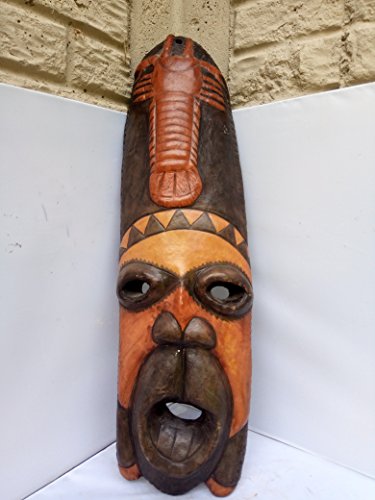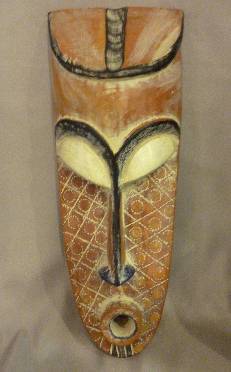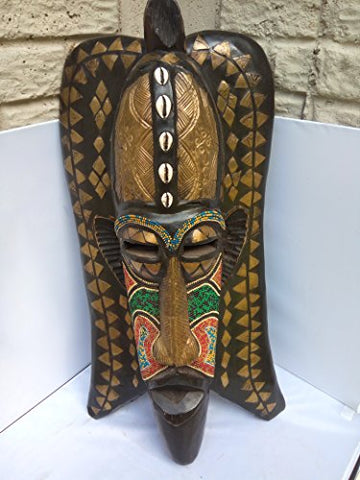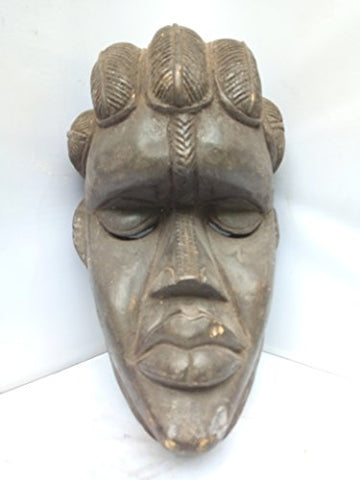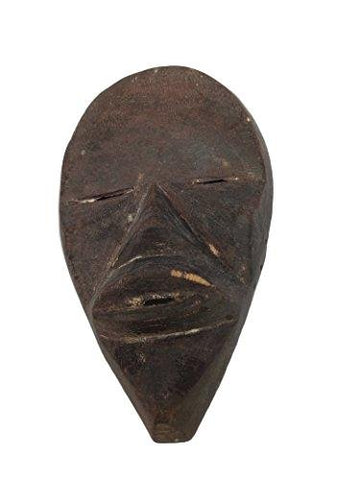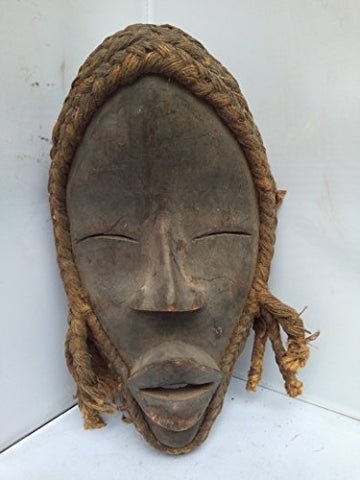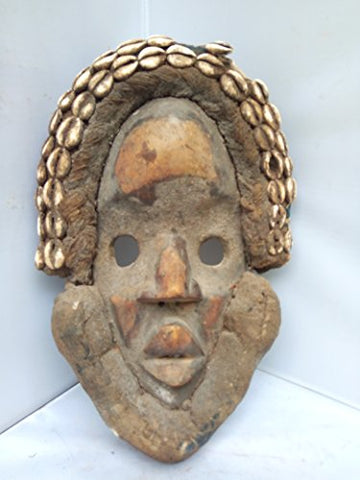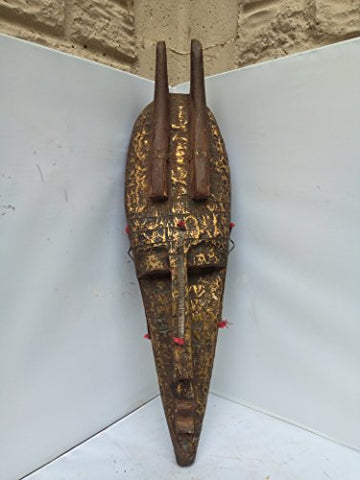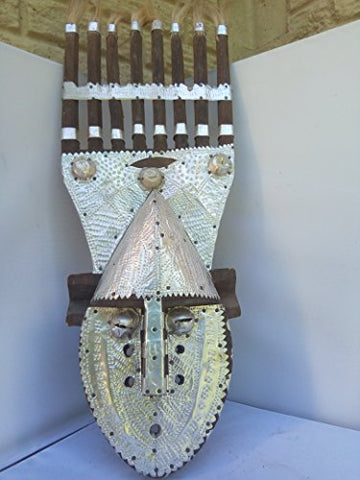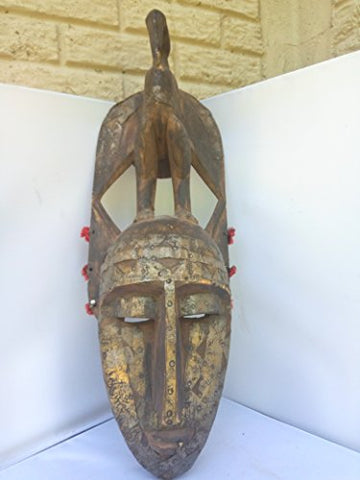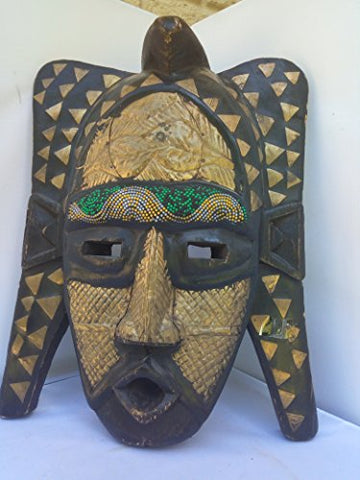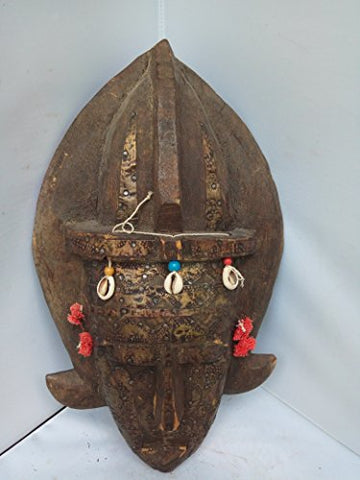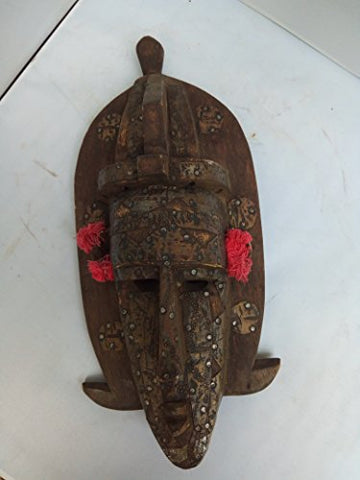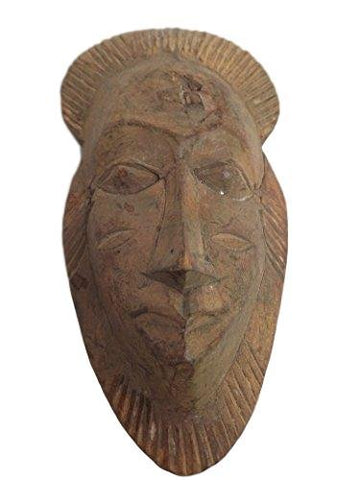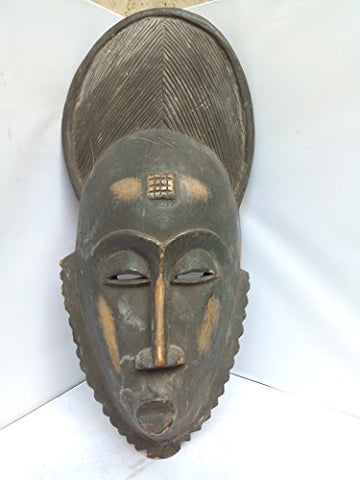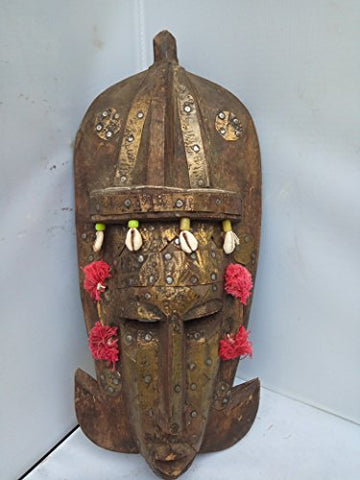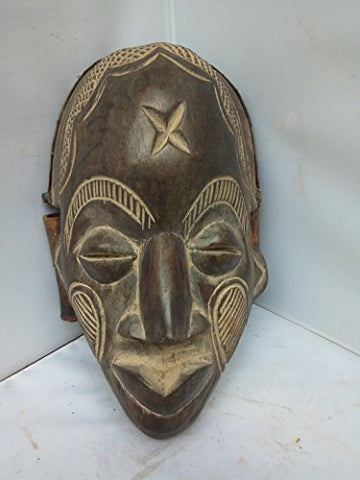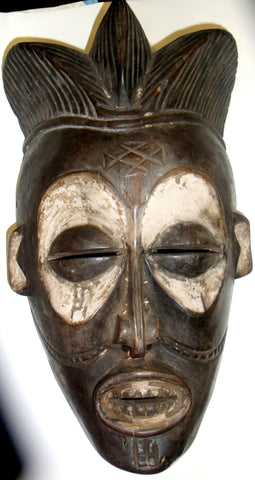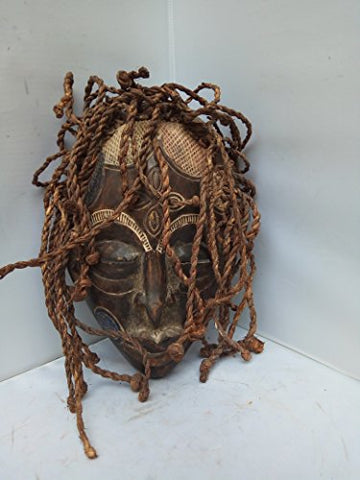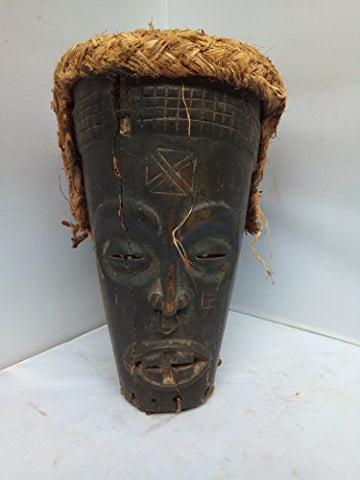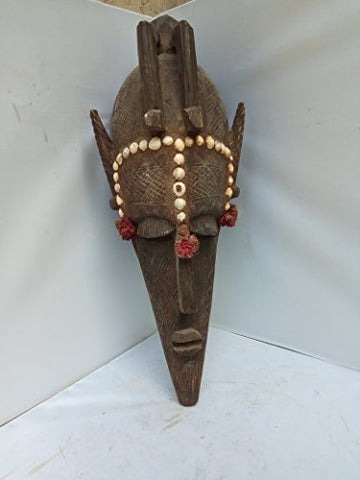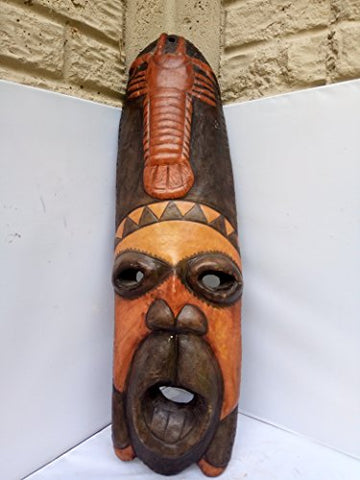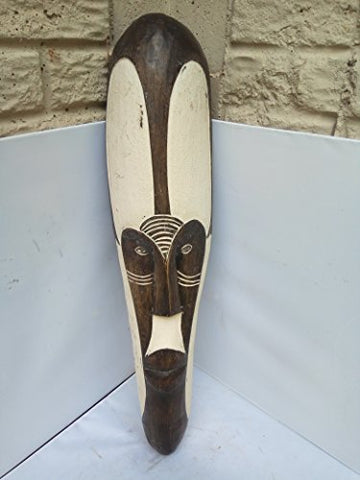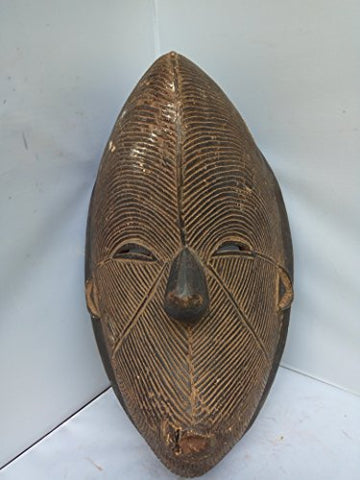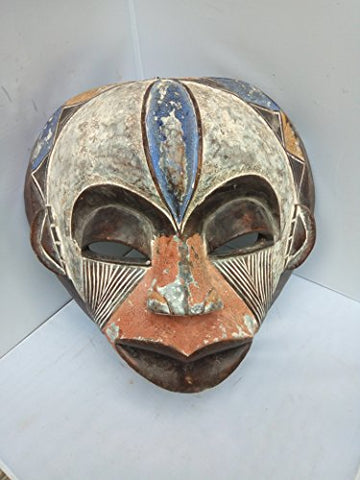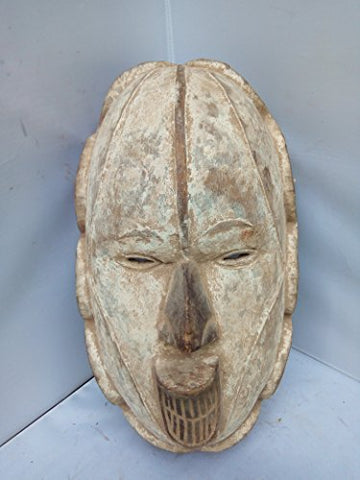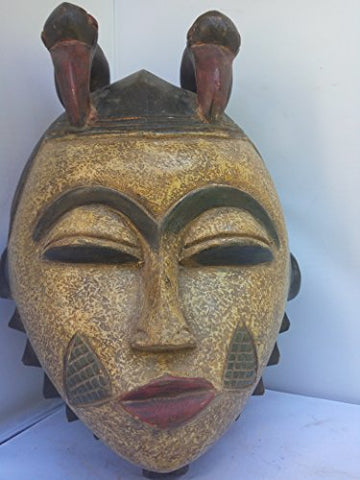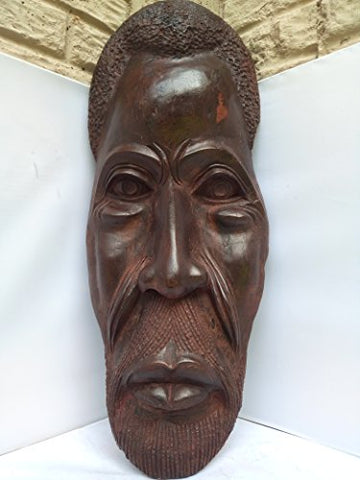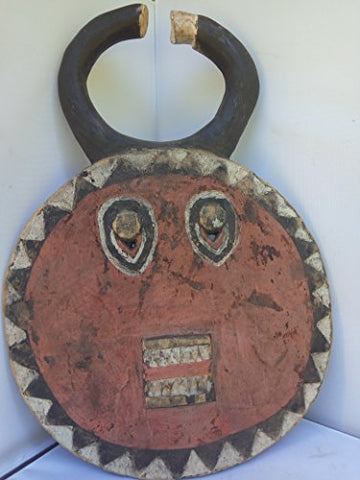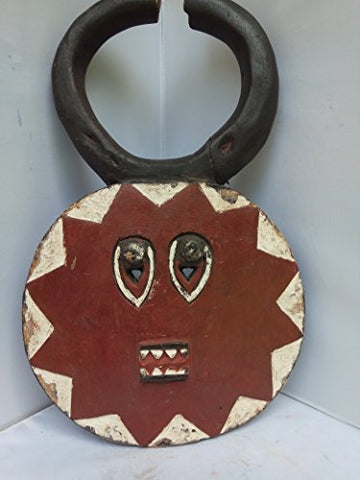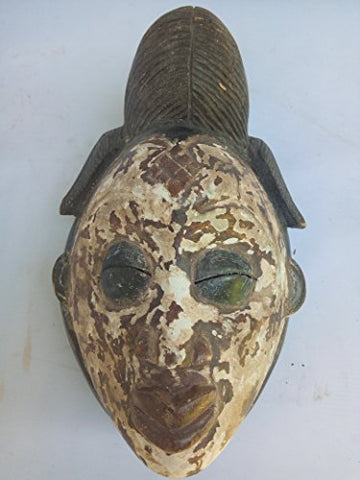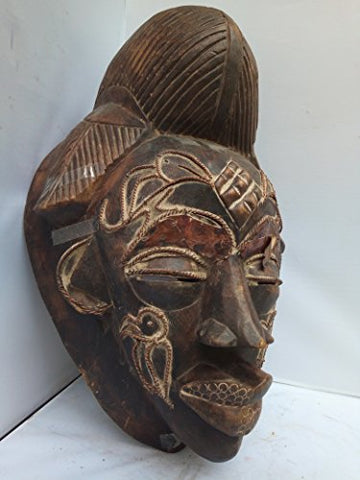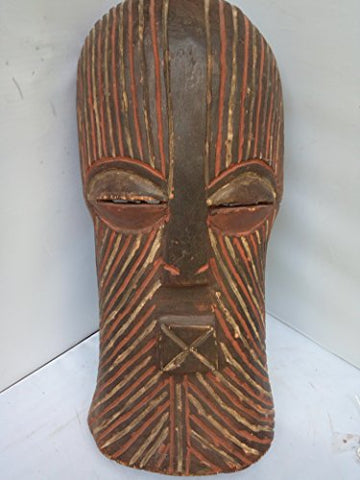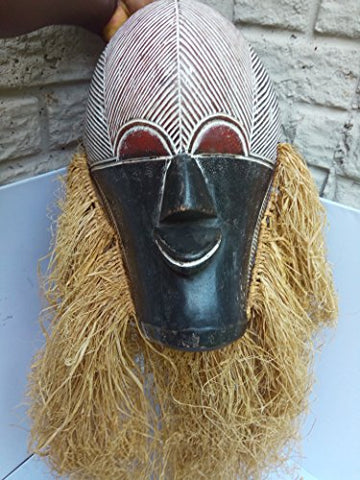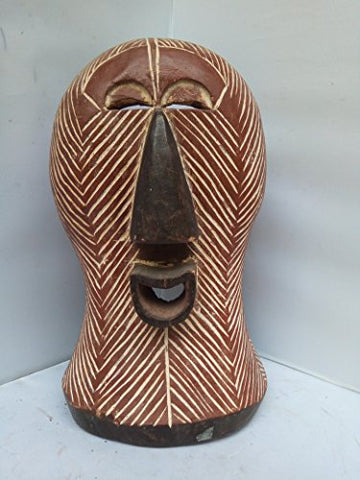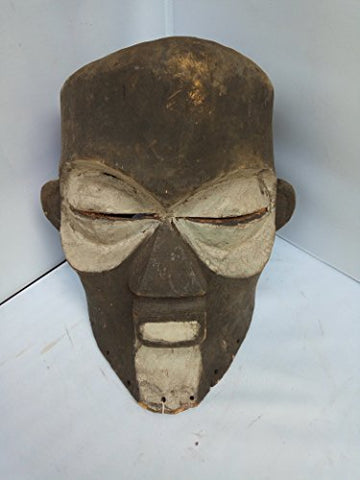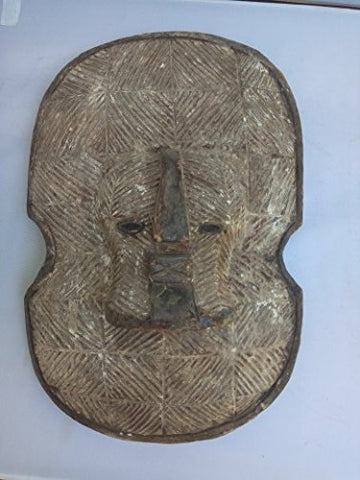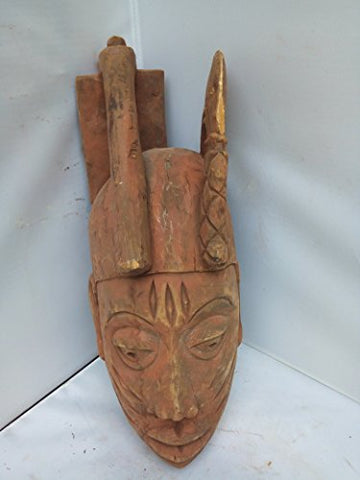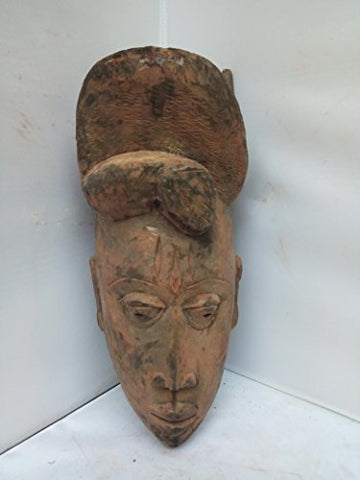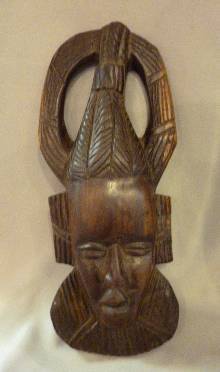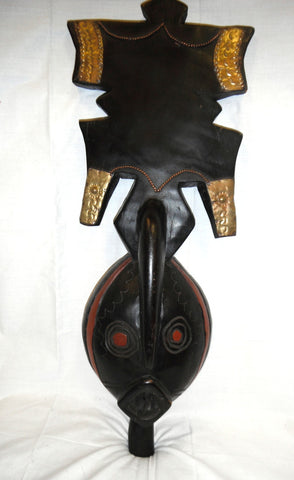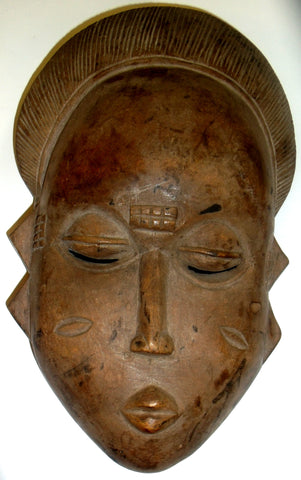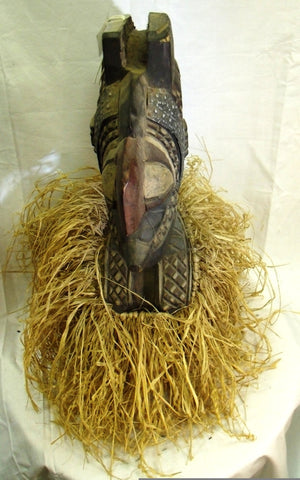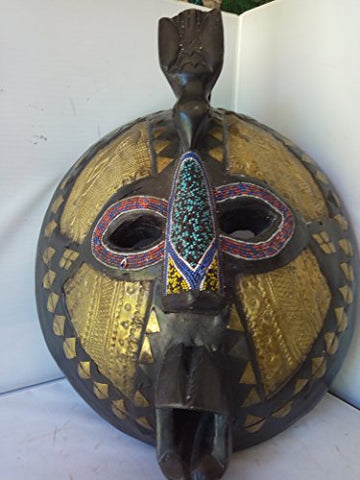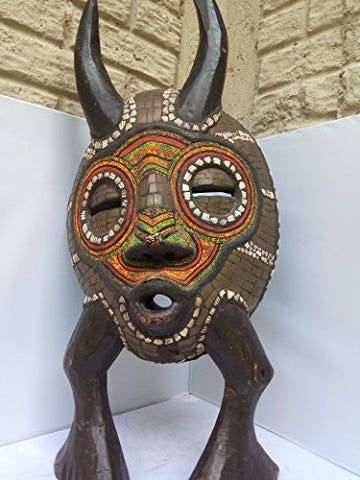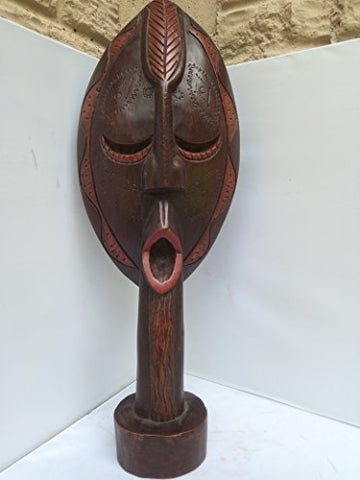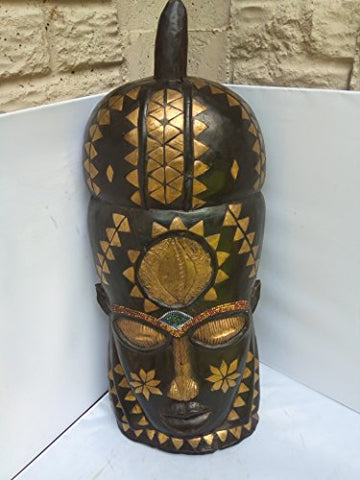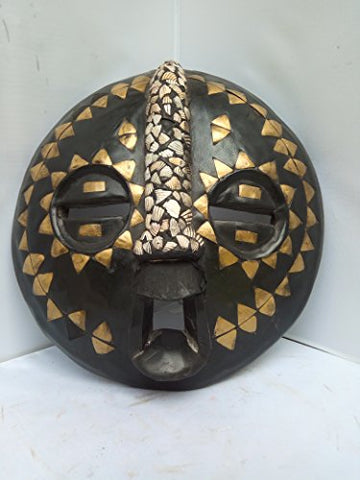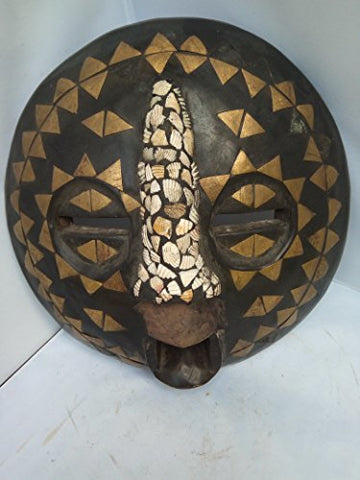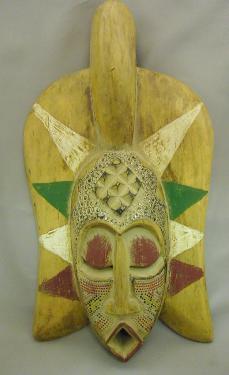Antique Dinka Leather Warrior Scorpion Mask From Sudan 25 x 7 inches
The first Mossi Empire was founded by invaders from northern Ghana. Today, the Mossi are the largest ethnic group living in Burkina Faso. They number 2,2 to 3,5 million and are the only tribe of Inland West Africa to have a centralized governing body, in addition to clans and professional corporations led by elders known as zaksoba. They are an ethnically diverse people divided into two social groups. Political power resides in nakomze, whose ancestors invaded the region in 15th century and subjected the various autochthonous groups living there. From these arose the tengabisi, a heterogeneous population whose kinship groups have provided the religious leaders of the Mossi to this day. On the north, one encounters a region of Sahelian desert steppes, then further south a zone of tree-field savannas, which gives way to forestland in the deep south. The greater part of the population lives off agriculture and cattle breeding. They grow millet, sorghum, maize, sesame, peanuts, and indigo. Cotton, introduced by the French during the occupation, is also cultivated over large stretches of land. Since the beginning of the century, the family has not been regarded as part of a community, since custom required that, immediately after circumcision, the eldest son leave to live independently from his father. Similarly, the young wife had no status whatsoever until the birth of her first child, which gave her the right to visit her parents. She did not raise her children, who were entrusted to older wives. On the other hand, at the death of a farther, the son would receive the wives and fields of his father.

